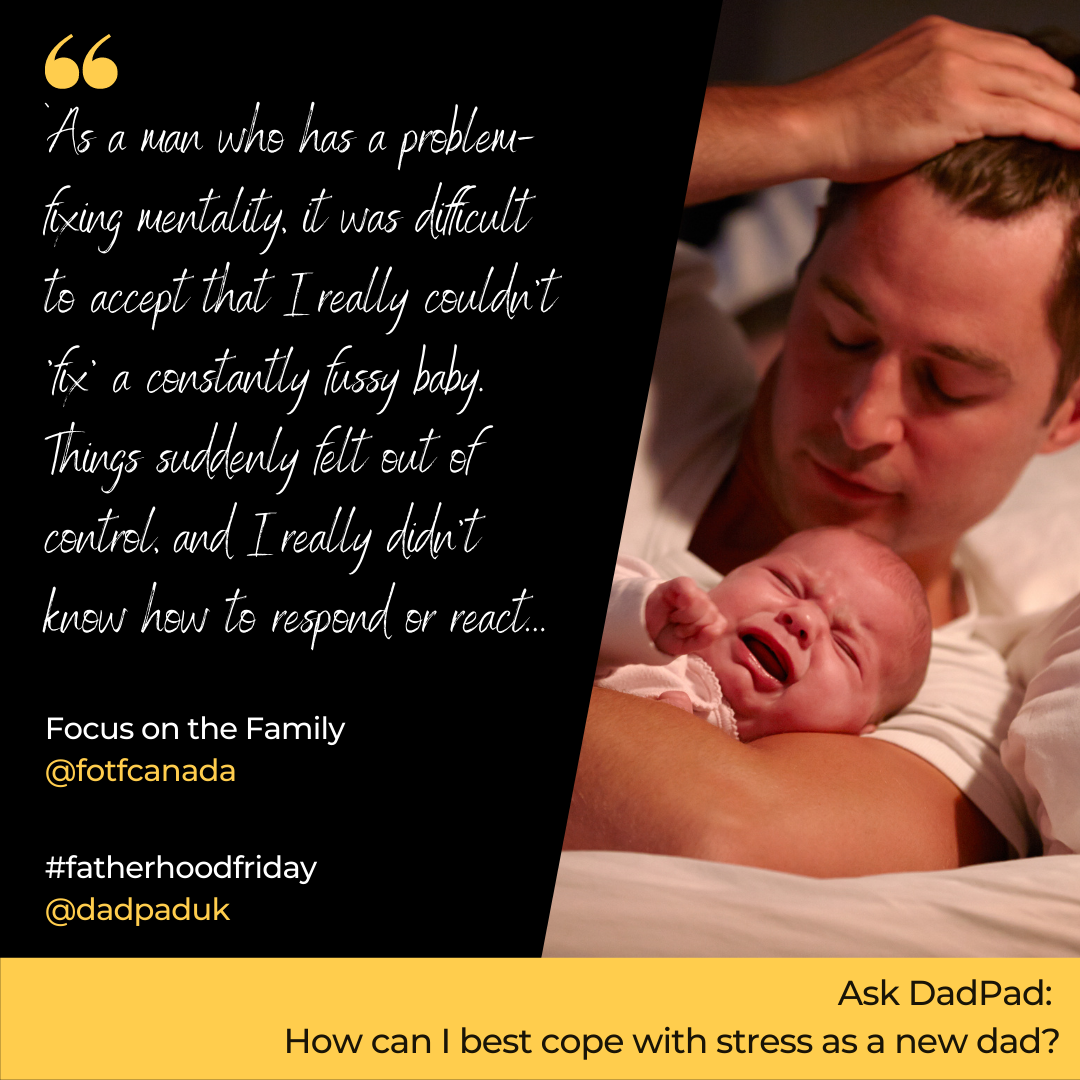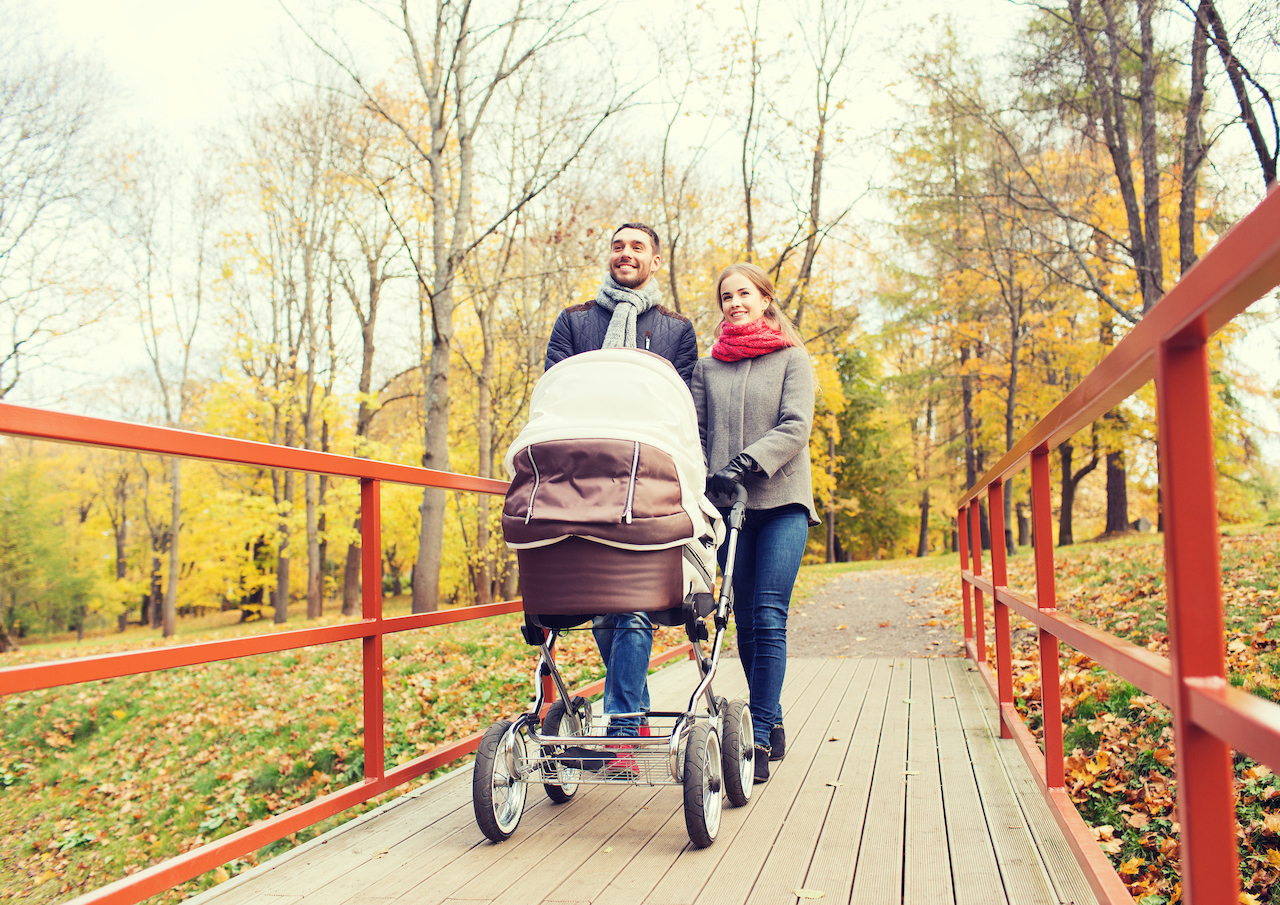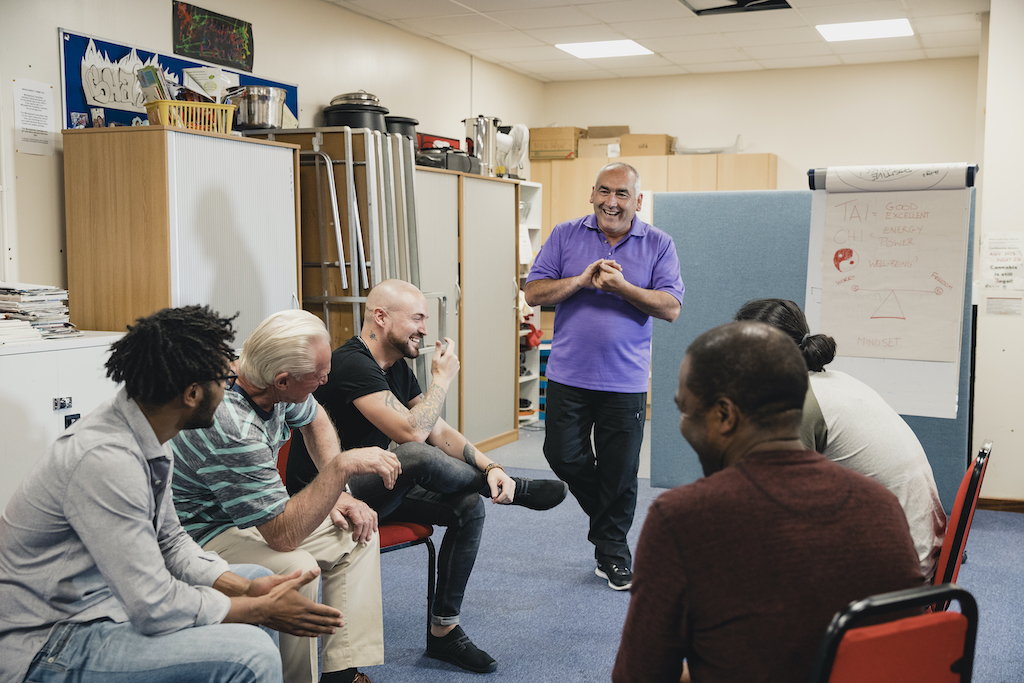
Ask DadPad, Health & Wellbeing, Mental Health
Ask DadPad: How can I best cope with stress as a new dad?
Posted on 13th November 2021
As well as being a very exciting and usually happy time of your life, becoming a new dad can also be a time of great stress, for a whole range of reasons.
Stress-triggers for new dads
If you consider this list from Mind of feelings and experiences which can trigger stress, you can see that a lot of these will be experienced as a new dad:
Being under a lot of pressure
Suddenly you’ve gone from being responsible just for your own wellbeing and that of your partner, you’re now faced with a tiny, vulnerable little human being who is 100% reliant on you and its mum to keep it alive and well. No pressure!
Facing big changes
You’re probably becoming increasingly aware that ‘nothing will ever be the same’ in your life. Baby’s needs are going to need to come first – or, at least, fairly high up the ‘to do’ list – and that can feel quite scary. You might have to change your car, change your routine, maybe even change your house or job… and you might also be worried about the impact that the new arrival is going to have on your relationship with your partner, too.
Worrying about something
You’re not human if the thought of bringing a little person into the world doesn’t cause you at least a small degree of concern. And the worries continue, especially when you’re anxious about their health and their wellbeing. The “what ifs…?” can sometimes feel quite overwhelming.
Not having much or any control over the outcome of a situation
Going through pregnancy with your partner can be exciting, but – as a dad-to-be – you can often feel that things are outside of your control. First there’s the pregnancy, where it often feels as if all the focus is on mum, baby and their needs, but you might feel left out and not as involved as you’d like to be. And then there’s the birth – a time of high emotions for everyone, and again all you can do is sit by and watch events unfold, supporting mum as best you can. Going forwards, when baby comes home, again it can feel like you’ve got no control over how well baby is feeding, how to comfort baby, how to get baby to sleep and how to stop baby crying.
Having responsibilities that you’re finding overwhelming
As we’ve already mentioned above, you’re likely to feel the pressures of new responsibilities – whether those pressures come from within us or from those around us. Becoming a dad might give rise to feelings and expectations that you’ve carried around in you for years: perhaps you now feel that you’re now ‘the breadwinner’, or maybe you had a negative experience of what a dad is and you want to do your best now not to repeat those ‘mistakes’ for yourself; maybe your partner, or your parents, or your in-laws have dropped hints about what they expect you to do/change/stop doing now you’ve become a father.
Not having enough work, activities or change in your life
OK, so maybe not the last one on this list – becoming a new parent is a time of great change! – but worries about your job and/or your ability to support your family can loom large when you have a child, and you might also start to worry that you will no longer have time for all the hobbies and activities that you enjoy doing and which help keep you calm and grounded, such as sports, meeting with mates, and getting time on your own.
Times of uncertainty
The final point from the Mind list is huge for a new dad – for many of the reasons that we’ve already touched upon above. With the changes taking place in your life, and the emotional upheaval and tiredness that you and your partner will be feeling, together with the expectations and pressures that you might also be experiencing, now is a time of enormous uncertainty. There’s lots going on and you’ve got a lot on your plate!

All of these pressures are a lot for anyone at the best of times, but when you consider what we’ve all had to live through over the past two years, most of us are feeling a lot more stressed, anxious and/or worried than we might normally be. Concerns about money, work and/or housing are a lot worse for a lot of people right now, and existing mental health conditions might have been exacerbated by experiences of lockdown, isolation and worry.
For all these reasons, and more, it’s therefore of crucial importance that you take steps to manage and limit your stress, and also to do things that will go some way to relieving the pressures that you’re experiencing. We looked at the reasons why – as a dad-to-be and as a new dad – keeping your mental health in good shape is important in a previous blog post and also how these stresses can lead to more serious mental health conditions, such as post-natal depression.
But what even is stress?!
This is an interesting question, and one to which there’s no easy answer. Indeed, as Mind report:
There’s no medical definition of stress, and health care professionals often disagree over whether stress is the cause of problems or the result of them.
For some of us, we might feel ‘stressed’ as a result of outside situations or pressures that we are facing (such as becoming a new dad, or being worried about losing our job, or relationship difficulties), but others might view ‘stress’ as our reaction to those pressures.
In modern life, it’s almost impossible to escape the pressures that can make us feel stressed, and – when we are generally feeling well and on top of things – a bit of stress can actually help or motivate us (such as when we have a deadline to meet, a presentation to give or an exam to sit).
What we need to look out for, though, are the situations when stress is having a negative impact on our lives. You can be alert to this by looking over the list of symptoms of stress outlined on the NHS website, which includes:
- Physical symptoms, such as headaches or dizziness, muscle tension or pain, stomach problems, sexual problems, or experiencing chest pain or a faster heartbeat
- Mental symptoms, such as difficulty concentrating or making decisions, feeling overwhelmed, constantly worrying, or becoming forgetful
- Changes in behaviour, such as being irritable and snappy, sleeping too much or too little, eating too much or too little, avoiding certain places or people, or drinking or smoking more
Once you know what to look out for, you’ll hopefully be well placed to spot any warning signs early and take steps to reduce the pressures that you’re under, and/or improve your ways of coping.

How to help yourself
The good news is that there is lots of great information out there today on ways of managing and reducing our stress, and sources of outside help to reach out to when we can’t cope on our own.
Taking control
One of the suggestions from Mind with regard to dealing with pressure is to firstly identify what is triggering your current feelings of stress, pressure and overwhelm. Right now, as a new dad or a dad-to-be, some of these are likely to be outside of your control (especially in relation to your baby, its sleep patterns, its crying, and so on), and the charity’s suggestion here is that you work towards accepting the things that you can’t influence or alter:
It’s not easy, but accepting that there are things happening to you that you probably can’t do anything about will help you focus your time and energy more productively.
So, given that you can’t stop your baby crying or make them sleep for hours on end, what you can instead do is adjust your thinking in relation to those things. We’ve got some blog posts on here, for example, which give you some ideas on how to cope with your baby’s crying and better understanding why your newborn won’t sleep through the night.
For some of your triggers, though, there will be things that are within your control, and taking steps to deal with these might help how you are feeling. Mind list things like housing and finance worries, work and student life, and family and personal life as falling within these categories. Their website includes links to further information and ideas on coping with each of these topics.
Talk it through
Another recommendation on dealing with the stress that you might currently be experiencing is to talk to those closest to you, such as your friends or a trusted family member. Anyone who has already had children will be able to empathise with how you are feeling, and it can definitely help to alleviate stresses by sharing your experiences with someone that you trust.
Obviously, being a new dad probably means that it’s not so easy to accessing your usual support network for a chat, so you might need to be a little more inventive in finding time for a chat. One idea is perhaps to meet your friend for a chat whilst you take baby for a walk in their pram – as well as giving you the chance to offload and giving baby’s mum a little bit of time to herself, it’ll also give you some other benefits as well, which we’ll look at below.
If you don’t feel comfortable talking to someone close to you about your worries and anxieties, though, don’t forget that your Health Visitor or even your GP will be more than happy to listen to you and to offer you some suggestions on how to cope. And don’t ever worry that you will be judged as a ‘bad father’ if you admit that you’re feeling the pressure; the fact that you are taking the time to talk over and/or seek support from the sort of pressures that many new parents experience simply goes to show that you are taking your new responsibilities seriously and doing your best to give your baby the best start in life.
And finally, if none of these options feel like something that you can do, remember that there are also anonymous phone support lines – such as the Samaritans, who are there to talk to you all day, every day, on 116 123. What’s vital, though, is that you do speak to someone, as this can make a huge difference to how you feel. As Kieran Anders from Dad Matters UK has commented:
Once you’ve done this [i.e. unburdened yourself], then you can take the steps that you need to fix it. Acknowledging how you’re feeling before you get to the point of needing professional support means that you’ll be less likely to need professional support.

Taking some time for you
As a new parent, we can often feel lost, and it can sometimes feel that we are no longer the person that we used to be. This change can add to our stress levels. It’s therefore a good idea to try and carve out some ‘me’ time, if you can, as a way of relieving the stress.
Clearly, as a new dad, working alongside baby’s mum during these challenging and exhausting first few weeks and months of baby’s life, finding time for ourselves is often difficult, if not impossible. It’s therefore a good idea to talk over your worries with your partner (she might well be feeling the same as you) and looking to find solutions and compromises which would allow each of you an occasional slice of time for yourselves. Ideas on how you could do this and what you could do might include:
- taking baby out for a walk for an hour or so, maybe in their pram or in their sling. Not only will this give mum the opportunity for some time for herself at home, but it’ll also get you out of the house – this in itself can be a huge boost to our mood in the early days of parenthood, when getting out of the bedroom, let alone the house, might feel insurmountable. Other benefits that you can experience in doing this might include:
- popping in your earphones and listening to some of your favourite music, or an audiobook, or even one of the NHS free mental wellbeing audio guides;
- meeting up with a friend for a chat, perhaps catching up on news and gossip from your social circle;
- spending time in nature, which is a recognised way of boosting our mental health. The Mind website includes a quote from a person with bipolar disorder who notes that “getting out in nature and walking…helps to keep me calm and physically healthy… I love taking the time to be mindful of all the beautiful green spaces around me, even when living in a city. Watching the birds and squirrels always has a calming effect and takes me out of my own head“. On these occasions, you might want to ditch the earphones and instead focus on listening out for the calming sounds of nature;
- being physically active – another good way of keeping our mental health positive. It works by helping us to feel more tired at the end of the day (and hopefully boosting the quality of our sleep), as well as leading to our brains releasing feel-good hormones which boost our mood and give us more energy. We’ll also release cortisol into our blood stream, which aids our body’s ability to cope with stress.
- watching a favourite TV show, especially one that makes you laugh. The Mayo Clinic have noted that the physical changes that take place in our body when we laugh are good for stress relief, including an increase in endorphins released by the brain, a firing up and then cooling down of our stress response, an increase then decrease in our blood pressure and heart rate, and stimulation of our circulation, all of which helps to reduce some of the physical symptoms of stress as well as helping us feel more relaxed. And if you watch a programme together with your partner, it might also help the two of you re-connect and remember what it felt like to be a couple, before baby arrived…
- taking some time out to focus on relaxation, which might be a soak in the bath, some meditation practice, or even some simple breathing techniques. There’s lots on the latter point on the internet, including 3-4-5 and 4-7-8 breathing practices, but a good place to start might be the NHS breathing exercises for stress.

Watch what you’re putting into yourself
At times of stress, it’s especially important to keep our bodies in as good shape physically as we can. This means ideally eating nutritious meals (lots of fruit and vegetables, if possible) and keeping an eye on the amount of caffeine and alcohol that we’re consuming. It’s not always easy, especially when you’re tired and feeling run ragged with a crying baby, but – as they say – every little helps! For more information on how diet and lifestyle can help stress – including links to some meal and recipe ideas – have a look at the BBC Good Food website. The Mind website also has great information on how food can affect mood, including the importance of trying to keep our blood sugar levels stable and also keeping our bodies hydrated.
And remember that your mental health matters!
We hope that these ideas – and lots of others, including developing a practice of gratitude and thankfulness, which we’ll come back to in a few weeks – might help reduce your stress levels, and help your body and mind cope with the pressures that you’re currently under.
We’ll end this blog, though, by reminding you of the importance of seeking help from the professionals around you at this time if you believe that you are struggling to manage on your own. It’s not an easy thing to do, and might feel completely beyond you, but – as a new dad – keeping an eye on your mental health and wellbeing is more important than ever [and if you need a reminder why this is, check out our ‘Why dads’ mental health matters‘ blog post].
To find out more on where you can go to gain support for your mental health, have a read of our blog post from June 2021.
However you do it and whatever you do, just make sure that you do reach out to someone, because #youmatter. ?

References and further reading:
Mind’s information section on stress, including sections on signs and causes of stress, and advice and ideas on how to deal with pressure, develop resilience and seek treatment, if needed. The website also contains information on the ways in which nature, physical activity and food can benefit our mental health.
NHS webpage on stress, including an overview of symptoms, and ideas of what to do and what not to do if you experience stress. There are also links to further information on breathing exercises for stress, 10 stress busters and their free mental wellbeing audio guides.
To find out more about how laughter can help to alleviate stress, have a read of The Mayo Clinic’s article on this topic.

